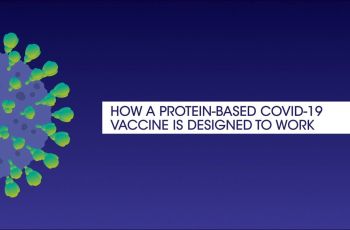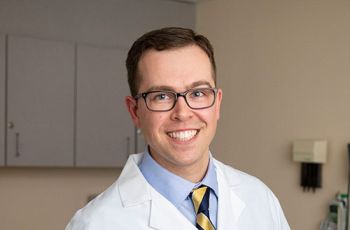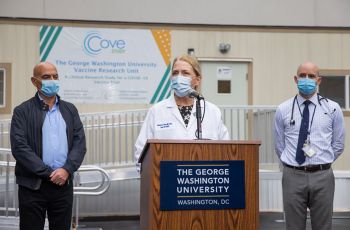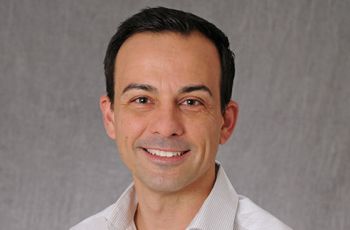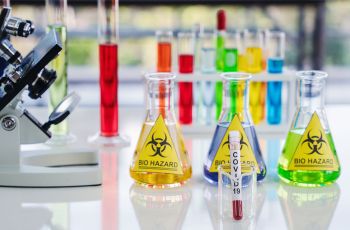Research News
The George Washington University announced today its participation in a Sanofi COVID-19 vaccine clinical trial. GW was selected as one of approximately 25 sites in the United States to launch a phase 2 study for its adjuvanted recombinant protein-based COVID-19 vaccine candidate.
Researchers at the George Washington University found that the majority of dermatology patients were comfortable with virtual visits as an alternative to in-person appointments.
Images that highlight the beauty and breadth of biomedical research and a passion for science at the George Washington University (GW) School of Medicine and Health Sciences (SMHS) were on display in the annual SMHS Art of Science contest.
A group of interdisciplinary researchers received more than $3.3 million in grants for their research on networks within the autonomic nervous system and therapies that may lead to new treatments for heart attack and sleep apnea.
A recent study by GW physicians on the severity of acute respiratory viral adverse events related to antirheumatic disease therapies found that some therapies may be associated with increased respiratory viral events while others don’t show increased frequency.
While COVID-19 infected patients should be treated with standard anticoagulation therapies, such as blood thinning medication, a new study by researchers at the George Washington University shows that anticoagulating patients at higher doses, without traditional medical indications to do so, may be…
Third-year MD student King John Pascual and mentor Ali Pourmand, MD, from SMHS are presenting findings at the American College of Emergency Physicians on the role of Google searches during the early phase of the pandemic in the U.S.
Moncef Slaoui, PhD, MBA, chief adviser for the COVID-19 vaccine development initiative Operation Warp Speed, visited GW on Oct. 21 to raise awareness for the national vaccine development efforts, encourage greater participation in the clinical trials and recognize GW for exceeding its enrollment…
The National Institutes of Health has awarded $1.6 million to researchers at SMHS for research on hormonal control of HIV latency.
It’s hard to recall a more important time for groundbreaking scientific research when it comes to the health and safety of the United States than in the past six months; by October the country had recorded more than 7 million cases of the novel coronavirus, and the global toll passed 1 million…
